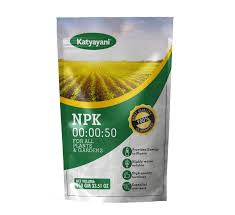
Nov . 26, 2024 05:57 Back to list
Organic Calcium Fertilizer Production for Enhancing Plant Growth and Health
Exploring Organic Calcium Fertilizers for Plants
As the global demand for sustainable agriculture rises, organic farming practices have gained significant traction among farmers and gardeners alike. One essential element in organic farming is the use of organic fertilizers, particularly calcium fertilizers, which play a vital role in promoting plant health and soil quality. This article will delve into the significance of organic calcium fertilizers, their sources, benefits, and how they can be utilized effectively in plant cultivation.
The Importance of Calcium in Plants
Calcium is a crucial macronutrient that contributes to various physiological functions in plants. It helps in cell wall formation, leading to stronger plant structures and better resistance to diseases. Calcium also plays a vital role in cell division and growth, making it essential for the development of roots, stems, and leaves. Moreover, it aids in regulating nutrient uptake and enzyme activity, ensuring that plants remain healthy and productive.
Organic Calcium Fertilizers What Are They?
Organic calcium fertilizers are derived from natural sources and can enhance soil health while supplying essential calcium to plants. Unlike synthetic fertilizers, which can lead to soil degradation and other environmental issues, organic fertilizers are environmentally friendly. Common organic calcium sources include limestone, gypsum, oyster shells, and bone meal. These materials not only provide calcium but can also contribute other beneficial nutrients to the soil.
Benefits of Organic Calcium Fertilizers
1. Soil Health Improvement Organic calcium fertilizers improve soil structure and aeration. By enriching the soil, they promote a thriving ecosystem of beneficial microorganisms, which enhances nutrient availability and supports overall soil fertility.
2. Enhanced Plant Growth Supplying adequate calcium levels encourages robust root development, leading to healthier plants that can better absorb other essential nutrients. This subsequently results in increased crop yields and improved produce quality.
3. Disease Resistance Healthy plants with sufficient calcium tend to be more resilient against various plant diseases and pests. Calcium strengthens cell walls, which provides a barrier against pathogens, thus reducing the incidence of diseases like blossom end rot in tomatoes and peppers.
organic calcium fertilizer for plants factory

4. Environmental Sustainability The use of organic fertilizers aligns with sustainable farming practices, promoting biodiversity and minimizing chemical runoff into waterways. This not only benefits the ecosystem but also supports farmers in adhering to organic farming standards.
Using Organic Calcium Fertilizers Effectively
To maximize the benefits of organic calcium fertilizers, it is crucial to consider the specific needs of your plants and soil. Here are some practical tips for effective application
1. Soil Testing Before applying any fertilizers, conduct a soil test to evaluate nutrient levels, including calcium. This will help determine the right amount and type of organic calcium fertilizer needed for your specific situation.
2. Proper Application Timing Apply organic calcium fertilizers during the soil preparation phase or before planting. This allows the calcium to integrate into the soil and be readily available for plant uptake.
3. Follow Recommended Rates Adhere to recommended application rates based on the soil test results to avoid over-fertilization, which can lead to nutrient imbalances.
4. Combine with Other Amendments Organic calcium fertilizers can work synergistically with other organic amendments, such as compost and manure, to enhance overall soil fertility and plant health.
Conclusion
Organic calcium fertilizers play a pivotal role in sustainable agriculture by improving soil health and supporting plant growth. With the increasing focus on environmentally friendly farming practices, the demand for organic fertilizers is expected to soar. By understanding the benefits and proper application of organic calcium fertilizers, farmers and gardeners can contribute to a healthier food system while cultivating thriving plants. Investing in organic calcium fertilizers not only nurtures plants but also promotes a more sustainable and resilient agricultural landscape for future generations.
-
10 10 10 Fertilizer Organic—Balanced NPK for All Plants
NewsJul.30,2025
-
Premium 10 10 10 Fertilizer Organic for Balanced Plant Growth
NewsJul.29,2025
-
Premium 10 10 10 Fertilizer Organic for Balanced Plant Growth
NewsJul.29,2025
-
Premium 10 10 10 Fertilizer Organic for Balanced Plant Growth
NewsJul.29,2025
-
50 Pound Bags of 13-13-13 Fertilizer for All Plants – Bulk & Organic Options
NewsJul.28,2025
-
High-Efficiency 15-30-15 Granular Fertilizer for Healthy Crops
NewsJul.28,2025
